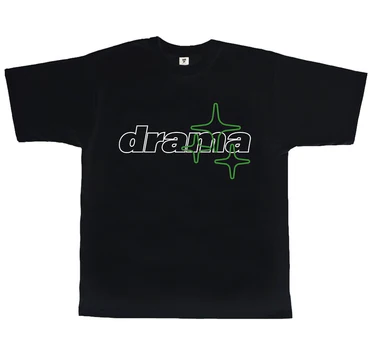In today’s fast-paced, emotionally charged world, the term “drama-call” has Drama Call become increasingly popular—especially among young adults and professionals navigating relationships, friendships, and workplace dynamics. Whether it pops up in social conversations or online discussions, this buzzword often implies more than just a typical phone call. So, what exactly is a drama-call, why does it happen, and how should one respond when caught in the middle of one?
What Is a Drama-Call?
A drama-call refers to a phone call that is emotionally intense, confrontational, or rooted in conflict or personal issues. Unlike regular conversations, drama-calls are characterized by raised voices, accusations, venting, or emotional breakdowns. The purpose is often to express unresolved feelings, stir reactions, or even manipulate the listener emotionally.
This term is commonly used in informal settings, especially on social media and among younger audiences who face frequent emotional interactions through digital communication. It may involve family drama, romantic issues, friendship conflicts, or workplace politics.
Common Triggers Behind Drama-Calls
1. Unresolved Conflict
When people avoid dealing with problems directly or let emotions build up over time, it often results in a dramatic outburst. A drama-call becomes the moment where everything spills out at once.
2. Miscommunication
A misunderstood text message, ignored call, or lack of clarity can lead someone to call in a heated emotional state. Drama often stems from a lack of context or tone in digital messages.
3. Manipulation or Guilt-Tripping
Sometimes, individuals use drama-calls to guilt others into actions, decisions, or attention. This is common in toxic relationships where boundaries are weak.
4. Emotional Overload
Stress, anxiety, or personal breakdowns can lead people to express themselves through intense phone calls, especially if they feel unsupported or overwhelmed.
Signs You’re in a Drama-Call
- The conversation quickly escalates in tone.
- You feel emotionally drained or attacked.
- The call focuses more on blame than resolution.
- The other person refuses to listen or calm down.
- You’re dragged into issues unrelated to you.
How to Handle a Drama-Call Calmly
1. Stay Grounded
Keep your tone calm and your responses short. Don’t let your emotions mirror the other person’s intensity.
2. Set Boundaries
If the call becomes verbally abusive or manipulative, assertively let the caller know you’re willing to talk only when it’s respectful.
3. Don’t Argue—Acknowledge Instead
Trying to win an argument during a drama-call only makes it worse. Acknowledge their emotions without validating unhealthy behavior.
4. End the Call If Needed
It’s perfectly okay to hang up if the conversation becomes harmful. Protecting your peace is a priority.
5. Follow Up Later
Once emotions settle, reach out through text or a calmer call if you feel the relationship is worth preserving. Offer to talk with understanding, not blame.
Emotional Impact of Repeated Drama-Calls
Frequent exposure to drama-calls can take a toll on mental health. It creates stress, Drama Call T-shirt affects mood, and can lead to burnout, especially when the conflict is ongoing. Those involved often feel caught in a cycle of emotional highs and lows, making it hard to find stability in relationships.
If you often find yourself at the center of drama-calls, it may be worth evaluating the people you surround yourself with and how you set personal boundaries. Seeking professional guidance through therapy can also be helpful for managing emotional responses and protecting your mental well-being.
Conclusion: A Drama-Call Doesn’t Have to Define the Relationship
Not all drama-calls are harmful—some are simply emotional outbursts during a difficult time. However, frequent drama without resolution signals unhealthy communication. By understanding the root of the call and responding with clarity and composure, you can prevent unnecessary conflict and maintain emotional balance.
